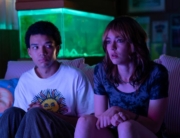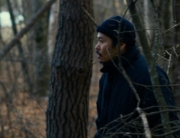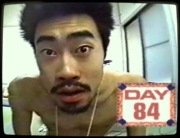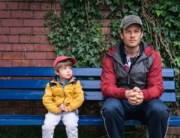

What a wonderful, glorious, inspiring film. The documentary Summer of Soul shines a spotlight on the Harlem Cultural Festival that took place in 1969 over four consecutive weekends, the same summer as the more famous Woodstock. It was filmed with the idea of becoming distributed as a concert film. In fact, the producer was shopping it as the “Black Woodstock,” and he was not far off. Unsurprisingly for the time, no one was interested.
The concert footage, overseen by director Hal Tulchin, was unseen for 50 years, and director and Roots drummer, Ahmir “Questlove” Thompson, has brought it back to life. He mixes the musical performances with commentary from artists that played there, as well as concert attendees and luminaries, such as Al Sharpton and journalist Charlayne Hunter-Gault, who was one of the first Black students to integrate the University of Georgia. (When fellow students would pound on the ceiling through the night from the dorm room upstairs, Hunter-Gault would combat the noise by playing Nina Simone records full blast.)
The film places the concert in the context of the era. By the summer of 1969, Harlem had had a rough year. There were riots after Martin Luther King Jr’s assassination the year before and an ongoing heroin epidemic. It was a difficult time. In fact, according to a concertgoer, the event was held to “keep us from burning up the city.” But the movie also deeply celebrates Harlem. The above-mentioned concert attendees look back at the joy of living there. How they felt safe. How people would just hang out on the streets like it was one giant family.
The concert was put together by Tony Lawrence, a nightclub singer who was “a hustler in the best way,” in the words of his assistant Allen Zerkin. He was comfortable with politicians and citizens alike and knew how to talk to musicians. Putting the concerts together was a Herculean task, what with the scheduling of acts and the hiring of security, which the Black Panthers provided as the promoters didn’t want a police presence. Cops showed up anyway, and it went without a hitch.
There are piercing observations in the interviews about the importance of music to Black culture. Writer Greg Tate states, “the only place we could be fully expressive was in music.” And what music. The four weekends encapsulated every style one could think of: the psychedelic party soul of Sly and the Family Stone, the gospel blues of the Staple Singers, the pop stylings of the 5th Dimension, the Motown soul of Gladys Knight & the Pips and David Ruffin, the Latin jazz of Ray Barretto.
Luckily, even with all the talking heads, we hear great dollops of transcendental music. The duet between Mavis Staple and Mahalia Jackson, even if it’s only about two minutes of screen time, is worth the price of admission, along with the performances of Nina Simone, Hugh Masekela, and Stevie Wonder.
One shouldn’t shortchange the interviews, which are joyous and occasionally piercing. Marilyn McCoo of the 5th Dimension talks about how important it was for her to play at the event because everyone assumed, based on her group’s musical style, that they were white, and she wanted to connect to her people and prove themselves to the audience. One concert attendee touches on the changing of the musical guard, which was moving away from Motown to a more expansive sound. One young man at the time, Musa Jackson, observes, “We were suit and tie guys, and we see Sly, and we were no longer suit and tie guys.”
As stated, Summer of Soul places the Harlem Cultural Festival in its social and political context, and it’s hard not to see parallels of our current social climate. It’s telling that Nina Simone is saved toward the end, as she was possibly the most radical politically and angry performer there. She reads a tremendous poem, “Are You Ready, Black People?” by David Nelson, at the end of her set while the band vamps behind her, a moment that is empowering.
Ultimately, Summer of Soul can take its place among the great concert films, such as Stop Making Sense, The Last Waltz, and, yes, Woodstock.






Leave A Comment